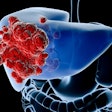SAN FRANCISCO - Gastroenterologists face a future of potentially wrenching reimbursement cuts for some services, coupled with important new economic opportunities in others, a leading practitioner said on Monday.
Surviving the sea change means building the future gastroenterology practice now -- a future that surely includes the widespread use of virtual colonoscopy for colorectal cancer screening, according to Dr. Joel Brill, who spoke at the Medical Group Management Association (MGMA) 2004 annual conference.
Brill, an assistant clinical professor of medicine at the University of Arizona College of Medicine, and chief medical officer of Predictive Health in Phoenix, AZ, is a member of the American Medical Association's Practice Expense Advisory Committee, which advises the Centers for Medicare and Medicaid Services (CMS) on reimbursement issues. He is also a member of the Practice Management and Economics Committee for the American Gastroenterological Association.
To be sure, gastroenterology is not alone as it strives to reinvent itself. Practitioners throughout the medical specialties face daunting challenges as they see care patterns shift, populations age, and technological advances outpace available funds. But at the least, gastroenterology offers a telling example of the scope of change facing today's providers.
The burden in gastroenterology will weigh heavily on a single procedure, according to Brill.
"The biggest threat to gastroenterology right now is CT colonography (virtual colonoscopy)," he said. "By 2007, CTC (VC) will have taken a firm toehold from a reimbursement and evidence-based standpoint. If the practice that you're managing does 55% colonoscopy -- let's say that 60% of those are screening colonoscopy -- what do you think is going to happen when CTC gets reimbursed by payors?"
Practice income from colonoscopy will plunge as more screening is done with virtual colonoscopy, that's what. And whether the VC exams are ultimately performed by radiologists or gastroenterologists, doctors must be prepared for the inevitable shift, Brill said.
And radiologists aren't the only competition looming for screening colonoscopy. An article last week described how more and more family practitioners, internists, and surgeons are performing conventional colonoscopy, he said.
On the plus side, a fast-growing population of elderly patients will need more medical services of all kinds, he said. The hard part will be finding ways to pay for them.
As payors get tougher about rising healthcare costs, gastroenterologists can expect more performance measurement programs, more pay-for-performance programs, and other strict incentives to be implemented in the coming years.
"One of the things (to do) when doctors are looking at new treatments, new technologies, and new cures, is to go back and ask the simple question: Are you being effective with what you're doing in your day-to-day, bread-and-butter operations?" he said. "Are you doing better by keeping people sick or keeping people well? If pay-for-performance, if Leapfrog or other initiatives continue in this country, will you be able to show that you are the quality provider -- using resources in the most efficient and effective way that allows you to get more money at the end of the day?"
Apart from payors' heightened scrutiny, reimbursement by the U.S. and consequently private insurers for gastroenterology services is expected to decline significantly this decade due to the methods used to calculate Medicare payments, he said.
The most important shortfall relates to calculating future Medicare payments under Section 1848 of the Social Security Act. Aimed at controlling the growth in aggregate Medicare expenditures for physicians' services, Section 1848 stipulates the use of a broad-based economic indicator known as the sustainable growth rate (SGR) to estimate a conversion factor applicable to Medicare payments for physicians' services during the following year.
The problem with SGR-based calculations is that they include the cost of drugs such as specialty pharmaceuticals, a component that is growing rapidly in terms of both cost and importance to gastroenterology practices, Brill said. As a result, the more skillfully drug companies are able to develop and promote their products, the less money will be available for physicians to provide services.
"Unless Congress fixes it, SGR will cause the conversion factor to drop 5% per year beginning in 2006," Brill said. Under provisions of the Medicare Prescription Drug Improvement and Modernization Act (MMA) of 2003, payments could drop as much as 30% by 2011.
Practice sites
As U.S. gastroenterologists hone their practices to increase efficiency and service specialization, they will also need to pay close attention to which services can be properly reimbursed in which settings.
Services provided in the office are generally well-reimbursed, but lack the benefit of a professional component that is payable in other settings. Ambulatory surgery centers (ASCs) are fine for surgery and other procedures such as colonoscopy (though not necessarily conscious sedation). ASCs come with a big regulatory limitation, however, in that they cannot be used for radiology, laboratory procedures, or diagnostic procedures.
So unless ongoing lobbying efforts succeed in changing the law, gastroenterologists can forget about offering virtual colonoscopy, capsule endoscopy, Helicobacter pylori breath tests, or drug infusions at an ASC, Brill said. Except for drug infusions, these procedures can be done at an independent diagnostic testing facility (IDTF). And it may even be possible to operate an ASC and IDTF at the same address, so long as they are operated completely independently of one another, he said.
Generally, however, "current regulations do not allow an ASC and an IDTF to operate under the same roof during the same hours of operation," Brill said. "There's only one exception, and that is if you need fluoroscopy to perform a surgical procedure."
Also on the payment front, CMS is expected to take a hard look at discrepancies between ASC procedure fees and OPPS (Hospital Outpatient Payment System) reimbursement in several medical specialties, notably ophthalmology. The fourth specialty down the list in importance, gastroenterology, also generated some interest, having logged the majority of its discrepancies last year in colonoscopy, Brill said.
"Could Medicare issue a rule recommending that endoscopy and colonoscopy physician work times (be) re-reviewed as part of the five-year review?" Brill asked. "(CMS) could do that in November. And if they do, it could cause a massive re-evaluation of endoscopic procedure work beginning in 2007. Could the volume of services affect reimbursement? Could ASC procedure reimbursement decline?"
VC questions, too
Gastroenterologists need to plan for the impact of virtual colonoscopy reimbursement in their practices, according to Brill. "What have you done to prepare your doctors for that eventuality? It's not a question of if, it's a question of when," he said.
The Bethesda, MD-based American Gastroenterological Association has issued a position statement on virtual colonoscopy. And although Blue Cross Blue Shield recently pronounced VC "not ready for prime time," two temporary category III codes for VC became effective in July, Brill said.
"We do not know what the impact is of minimal lesions," he said. "We know that there are cases that are missed by CT colonography, and we know that there are cases that are missed by optical (colonoscopy). If we've trained a generation of patients to know that if a polyp is found and it needs to be removed, how are you going to explain to them that if a diminutive polyp is found in (VC), it's now OK to watch, wait, and come back in a year or two years' time?"
Gastroenterologists could end up reading their own VC studies, or contracting with radiologists to provide these services. In any case, Brill said, future practice trends make it acceptable, and sometimes advisable, to establish clinical associations with other specialties such as cardiology and radiology.
New opportunities
In terms of economic importance to gastroenterologists, the impact of obesity services will be second only to that of virtual colonoscopy, Brill said. Outpatient endoscopic treatment for obesity is coming soon. A number of new treatments are available for irritable bowel syndrome, Barrett's esophagus, and gastroparesis. And while 4 million people in the U.S. are infected with the hepatitis C virus, only a quarter-million of them are being treated adequately. At the same time, endoscopic ultrasound represents real opportunities for franchise development and specialization, he said. Even online medical consultation can be a low-overhead money generator.
"So what are we left with for the digestive health practice of the future? A team approach to care, internal specialization using specialists from a variety of different disciplines, defining your clinical roles, and measuring and recording what you do," Brill said. Also look for consumer-focused healthcare; multiple services, both surgical and diagnostic; research and infusion under one roof.
By Eric Barnes
AuntMinnie.com staff writer
October 6, 2004
Related Reading
Virtual colonoscopy shows promise, experts say, September 2, 2004
VC and gastroenterology: friends in need?, July 16, 2004
CPT codes and the politics of virtual colonoscopy, April 30, 2004
Politics matters in the real world of virtual colonoscopy, November 5, 2003
Toward a CRC screening strategy: gastroenterologists take the stage, June 3, 2002
Copyright © 2004 AuntMinnie.com



















